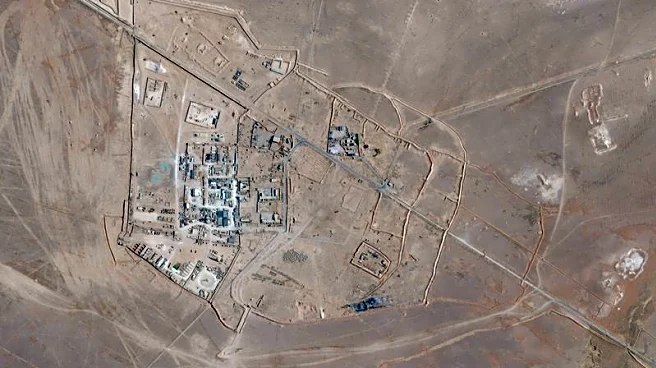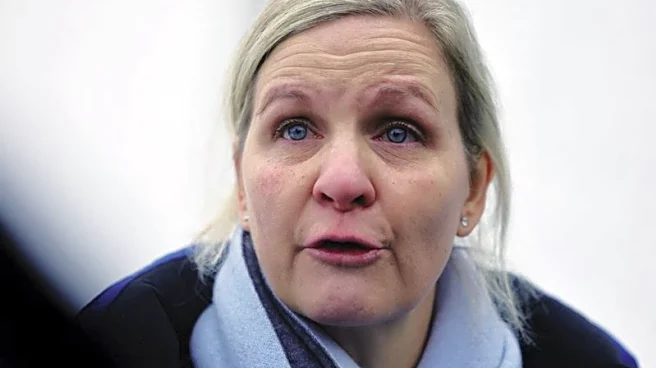What is the story about?
What's Happening?
A US-funded nutrition program in northeastern Nigeria, which provided therapeutic food to malnourished children, was abruptly halted earlier this year due to funding cuts. The program, operated by Mercy Corps, was crucial for over 55,000 children, including Yagana Usman's twin boys, one of whom died shortly after the program's cessation. The funding cut was part of broader foreign aid reductions by the Trump administration, affecting lifesaving programs globally. Despite recent resumption of US-funded food assistance, the capacity has been significantly reduced, impacting vulnerable populations. The World Food Programme has also warned of dwindling international donor funding, risking closure of nutrition clinics in the region.
Why It's Important?
The funding cuts have severe implications for child health in conflict-affected regions like northeastern Nigeria, where malnutrition is rampant. The reduction in aid not only threatens immediate survival but also long-term health outcomes for children. The US, as a major donor, plays a critical role in global humanitarian efforts, and its funding decisions can significantly influence the availability of essential services. The situation highlights the delicate balance between foreign aid and domestic priorities, raising ethical questions about the responsibility of wealthier nations to support vulnerable populations worldwide.
What's Next?
The US State Department has resumed some food assistance, but at a reduced capacity. Mercy Corps and other organizations are working to reopen nutrition clinics, but funding remains uncertain beyond November. The Trump administration is attempting to freeze additional foreign aid, which could further impact humanitarian efforts. Stakeholders, including international organizations and donor countries, may need to reassess funding strategies to ensure continued support for critical programs.
Beyond the Headlines
The funding cuts underscore the broader geopolitical dynamics of foreign aid, where strategic interests often dictate humanitarian priorities. The shift in US policy reflects an 'America-first' approach, potentially reversing decades of progress in global health and development. The ethical implications of such decisions are profound, as they affect the most vulnerable populations, including children facing life-threatening conditions.
















